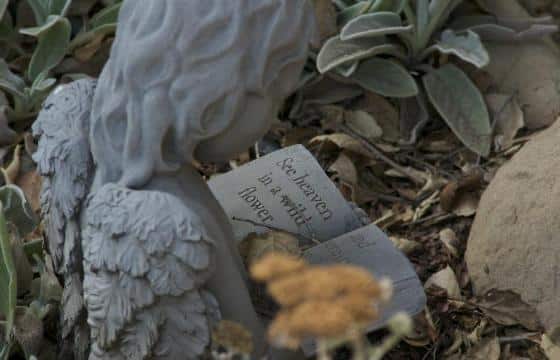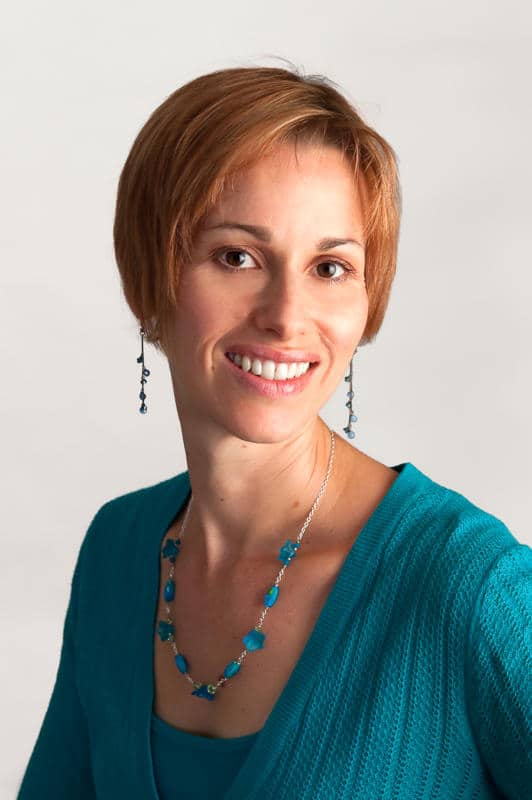 By Jordan Rosenfeld.
By Jordan Rosenfeld.
“For the dead and the living, we must bear witness.” –Elie Wiesel
New Years Day, somewhere after two a.m., my boyfriend and I had barely fallen to sleep when the unwelcome shrill of the phone awakened us. In that gray, dreamlike state, eyes gummy and hearts hammering, alarm zigged up my spine. Erik bolted up in bed, gasping awake, as though the animal instinct in his body knew what news the caller bore, an anguished string of words spewed into my ear by his younger brother: “Our dad is dead.”
His father was fifty-six years old. Erik, only thirty-two.
As I tried to collect facts of where to take him, Erik shook his head over and over again. “It can’t be.” His words strangled tears. “He just left me a message about having dinner tomorrow night.”
Bleary with fatigue, and disoriented by low-hanging January fog, I took the long way to the hospital. Erik pounded his palms on the dashboard and moaned “We should have gone down College Avenue,” as though we could somehow beat the bad news ahead of us and arrive to find his father still alive.
When we screeched into the lot and ran into the emergency room, Erik’s younger brother, a Sherriff’s deputy already working when he got the call, grasped Erik by the arm and swooped him away down the bright white corridor. I fell back to the waiting room, my hands like dumb, blind animals in my lap.
The first night after his father’s death, Erik writhed in his sleep and cried out like a feverish child. Several times he sat straight up, gasping, and I reached to calm his nightmare, to provide him at the very least, the gentleness of touch.
For the next few weeks, I watched my husband grieve—he replayed that last message from his father over and over, that had invited us to the New Year’s dinner that was never to be; he wrung his long fingers together, stared off numbly into space, burst into powerful diaphragmatic sobs at a moment’s notice. Once, he leaned forward in his chair, clutching himself as though he had a stomach ache, his mouth open in a cry that found no words.
Another time, I took the knife from his hand to finish spreading cream cheese on a bagel as a spasm of grief paralyzed him.
I knew, from having watched my own mother grieve my grandmother’s death a year earlier, that grief did not have a timetable, did not move in a set pattern. That nothing, and everything—stopping for gas, eating a cheeseburger, sunlight glinting through the glass paperweight on his desk, the sight of a Highway Patrol car, which his father used to drive—could remind him of his father’s bigger-than-life person. That the death of a parent, in particular, had a way of unmooring a person so deeply you had to check to see that you still existed.
Still, I felt his grief in a peripheral way—the way you can feel a train rumbling down a track if you press your face to a nearby window. It’s impossible to separate from the suffering of your loved ones, especially when grief so interrupts a person’s daily functions. Was I grieving, too? No, I was merely bearing witness. Yet I carry it as an ache in my body as though it happened to me.
Only three years after the death of his father, Erik suffered another, stranger loss that would once again find me in my bystander sidecar, face pressed against the witness glass. I was just on my way out when Erik answered the phone from a classmate in his graduate psychology program.
“What?” His tone was so like that strained timber of the night of his father’s death I felt the truth of the tragedy in my cells. He began to sob on the phone.
His graduate professor and mentor, Dr. Felix Polk, had been found dead, stabbed to death in his Orinda, California home.
The sordid truth of Dr. Polk’s relationship to the wife who killed him hadn’t yet been revealed. There would be true crime novels and made-for-TV movies to come. In this moment, all that we knew was that a man full of wisdom and charisma, a father- figure, was gone, wrenched out of his family’s and students’ lives.
As details of the murder surfaced, I remember the day Erik looked up at me with a pale face from his computer. “Felix shared my dad’s birthday.” Two complicated men, loved and lost.
This time though, he had to keep functioning; he was two years deep into his doctoral program and had little time to lose. So I helped to encourage him, almost like a mother to her child, to get his work done, get to sleep on time, and obtain proper nutrition.
Now, here I am again, bearing witness to the grief of strangers, and a loss even more unbearable than a parent or mentor—a child in my community. I have friends in common with her family and I read her mother’s wrenching daily blogs. Jennifer’s brown-eyed, laughing face is imprinted behind my eye. Six years old. Just a few months older than my son, Ben. Both in Kindergarten. Every morning I wake and her mother is my first thought: how she wakes without Jennifer over and over. How every morning must be a fist to the chest again and again.
Friends in my community text me: “Do you feel it too, the grief?” “Are you as sad as I am?”
What do we do with peripheral grief? With my husband, I could help: hold him, tend to him, make him meals. A mutual friend of mine and Jennifer’s family wrote that she believed there is worth in holding our hearts open to another person’s suffering. Like her, I believe that in bearing witness we shore up the edges of the grieving person. I believe in the communal power of grieving—that as we gather en masse around a suffering person—in thoughts or deeds—we send the message that there is still reason to go on living.
I wish it stopped there, this bearing witness to the suffering of others, but just this week alone two dear friends wrote to me that they’d lost close friends to senseless acts of violence or accident. One, a burglary interrupted in a small New York town led to slow death by gunshot of a well-loved violinist. In another, a car careening out of control on a wet road took the life of a woman not even forty.
“I’m sorry if I’m filling up your inbox” wrote one friend as she processed the loss of her best friend of forty-four years through shock, rage and the small solace as the perpetrators were caught.
“Fill it up all you need,” I wrote back. I could not reach her physically, and even if I were there to throw a loving hug around her, it wouldn’t heal what this loss had ravaged. But I can be there as a digital ear in the dark to receive her messages. I can heft one edge of that dark weight, a virtual pallbearer.
World events of late reinforce that if there’s one thing we can count on, it’s the steady rumble of future grief, ours and others’ heading toward us. We can’t take away another’s pain, but maybe, by turning toward it, by keeping our eyes open and offering a listening ear, we can offload enough of the burden to keep each other from going off the rails.
Jordan Rosenfeld is the author of the novel Forged in Grace, and the writing guides Make a Scene: Crafting a Powerful Story One Scene at a Time, and Write Free: Attracting the Creative Life (with Rebecca Lawton). Jordan’s essays and articles have appeared in numerous magazines, and she teaches via online writing courses and webinars. She has two writing craft books soon to be released with Writer’s Digest Books: A Writer’s Guide to Persistence: A Toolkit to Build & Bolster a Lasting Writing Practice (Spring: 2015), and, with Martha Alderson, “The Plot Whisperer,” Deep Scenes: Plot Your Story Scene-by-Scene through Action, Emotion & Theme (Fall, 2015), the material of which will be taught at their first annual WriterPath.com Retreat. Her first romantic suspense novel (pen name J. P. Rose) Night Oracles, releases Spring, 2014. www.jordanrosenfeld.net.




Thank you Jordan for writing this at this time. I am now grieving from afar for a mom whose son has the same genetic syndrome as my grandson (as if that was not enough) was paralized 2 weeks ago af few days after his 11th birthday. He is in terrible pain as well. I can feel his mom’s grief and the grief of this child as he asks the doctors “take me back to the surgery and fix me, fix me now”. Our hearts are all connected and I am hoping and I am sure that our collective grief and love is making it’s way into his mother’s heart.
On July 30 my husband lost his mother. She suffered a terribly long death. It was especially hard for my husband and sister-in-law. Then 3 weeks later my father died unexpectedly. That was devastating for me and my husband had to help me and deal with the loss of his mother, then this past January 3,2014 my husband died suddenly. In a blink of an eye literally he was gone. I never got to say goodbye. I am to this day so beyond devastated. I can not wrap my head around it. I cry every night and still during the day. We had such a special love for each other…we were the epitome of soulmates. In the 12 years we were together we NEVER had and argument or even raised our voices. We didn’t always agree, but never argued. We didn’t have any friends that we went out with because we had each other and that was enough. He took my heart with him and he still has it. Half of me is gone. I don’t have family around and people have stopped calling to see how I am. If it wasn’t for the young couple next door, I would never leave the house. Everything here, everywhere I go is so painful because of the memories. People also say “remember the good times and the memories you have”. Well it’s too painful to smile. I would never hurt myself but I feel if I die it’s ok, because I want to die. I miss him so much I can’t breath sometimes. No one can ever understand this kind of pain.
[…] via Bearing Witness. – The Manifest-Station. […]
Jordan, this article is wonderful. I just wish more people felt the same way. Too many people just don’t want to be there in any way for someone who is grieving. They have no idea how comforting it is just to have someone bear witness, as you put it. I’m sorry for your losses. You are a special person to know how to help.
Jordan, this post is beautiful and rings so true to my own experience as a grieving mother. So many people suffered because of the loss of my son, but in bearing witness and taking some of our burden, I believe they participated in something holy, too. It truly made a difference.